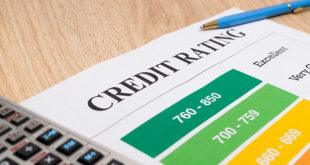Debt collection agencies play a critical role in the financial ecosystem, acting as intermediaries between creditors and individuals or businesses who owe money. Their main function is to recover debts that have become overdue, helping lenders recoup funds while offering structured solutions for debtors. While some people view these agencies negatively, they can provide a necessary service for maintaining financial stability.
How Debt Collection Agencies Operate

Debt collection agencies typically operate by purchasing debts from creditors at a fraction of their value or by working on a commission basis. When a debt is sold, the agency assumes the responsibility of recovering the owed amount.
They employ trained professionals who contact debtors through letters, phone calls, and, in some cases, legal proceedings. The goal is to negotiate payment plans or settlements that satisfy both the creditor and the debtor.
Legal Framework and Regulations
Debt collection agencies are bound by strict laws designed to protect consumers. In the UK, these agencies must comply with regulations outlined by the Financial Conduct Authority (FCA) and adhere to the guidelines set by the Consumer Credit Act.
This includes providing accurate information about the debt, maintaining respectful communication, and avoiding aggressive or misleading tactics. Awareness of these regulations is crucial for anyone interacting with a collection agency, ensuring that their rights are protected.
Types of Debts Handled
Debt collection agencies deal with various types of debts, including credit card balances, personal loans, utility bills, and unpaid medical expenses. Some agencies specialise in certain sectors, such as business-to-business debts or high-value personal loans.
Understanding the type of debt and the agency’s expertise can influence how effectively the debt is recovered.
Strategies Used by Debt Collection Agencies

Agencies utilise a range of strategies to recover debts. Initially, they may send reminder letters or make telephone calls to encourage repayment. If initial efforts fail, they might propose structured repayment plans or negotiate partial settlements.
In some cases, agencies pursue legal action to secure the debt, which could involve obtaining a court judgment or enforcing liens. These strategies aim to balance the need for repayment with the debtor’s ability to pay.
Impact on Credit Ratings
One significant consideration when dealing with debt collection agencies is the impact on an individual’s credit score. Unpaid debts reported to credit reference agencies can lower a credit rating, making it more difficult to secure loans or financial products in the future.
However, promptly addressing collection efforts and negotiating settlements can mitigate long-term damage to creditworthiness.
Choosing a Reputable Agency
Selecting a reputable agency is essential for both creditors and debtors. For creditors, working with a trustworthy agency ensures ethical and efficient debt recovery. For debtors, dealing with a regulated agency reduces the risk of harassment or unfair treatment.
Checking credentials, reading reviews, and confirming FCA registration are key steps in identifying a reliable debt collection partner.
Benefits and Challenges

Debt collection agencies offer several benefits. They relieve creditors of the burden of chasing overdue accounts, provide structured solutions for debtors, and can often recover a higher percentage of owed funds than an individual creditor might manage alone.
On the other hand, challenges include potential conflicts with debtors, legal complexities, and the need for careful compliance with regulations.
How to Handle Contact from Debt Collection Agencies
When contacted by a debt collection agency, it’s important to remain calm and informed. Verify the debt, request written confirmation, and understand your rights under UK law. Negotiating payment plans or settlements can prevent further escalation and protect your credit score. Avoiding communication or ignoring correspondence can lead to legal action and additional costs.
The Role of Debt Collection Agencies in Modern Finance
In today’s financial landscape, debt collection agencies are more than just intermediaries; they are vital for maintaining liquidity and financial accountability. Their services ensure that debts are resolved efficiently, which supports both businesses and individuals in managing their finances responsibly.
For those seeking more information or looking for professional assistance, debt collection agencies provide resources and guidance tailored to different debt scenarios.
The Psychological Impact of Debt Collection

Dealing with debt collection can be emotionally draining for debtors. Stress, anxiety, and even feelings of shame often accompany overdue accounts. Understanding that debt collection is a structured and regulated process—not a personal attack—can help reduce this burden. Agencies that adopt empathetic approaches, offering flexible repayment plans and clear communication, can ease psychological stress while still achieving repayment goals.
Working with Legal Professionals
In cases where debts are disputed, complex, or escalated to the courts, legal professionals can play a crucial role. Solicitors specialising in debt recovery can help creditors pursue claims efficiently and lawfully, while also advising debtors on their rights and options.
Legal expertise ensures compliance with all relevant regulations and increases the likelihood of reaching fair outcomes. For businesses, combining agency services with legal guidance often provides the most effective path to resolution.
Future Trends in Debt Collection Agencies

Debt collection is evolving alongside technology. Many agencies now use AI-powered tools to predict repayment behaviours, automate reminders, and personalise repayment plans.
Digital communication, including secure apps and online portals, is becoming standard, offering debtors more convenient ways to engage. Additionally, increased emphasis on ethical collection practices and sustainability in finance is shaping how agencies operate.
Future agencies are likely to focus on transparency, customer support, and data-driven strategies to balance recovery with debtor wellbeing.
Conclusion
Debt collection agencies serve an essential function in bridging the gap between creditors and debtors. By understanding how they operate, the legal protections in place, and strategies for interacting with them, individuals and businesses can navigate debt recovery more confidently.
Whether seeking to recover owed funds or resolving personal debt, these agencies offer structured, regulated approaches that benefit all parties involved. Familiarising oneself with their role can demystify the process and ensure fair outcomes when dealing with overdue debts.
In the modern economy, debt collection agencies continue to adapt, using innovative methods and adhering to stricter compliance standards, reflecting their indispensable role in financial management.
 Imagup General Magazine 2025
Imagup General Magazine 2025



